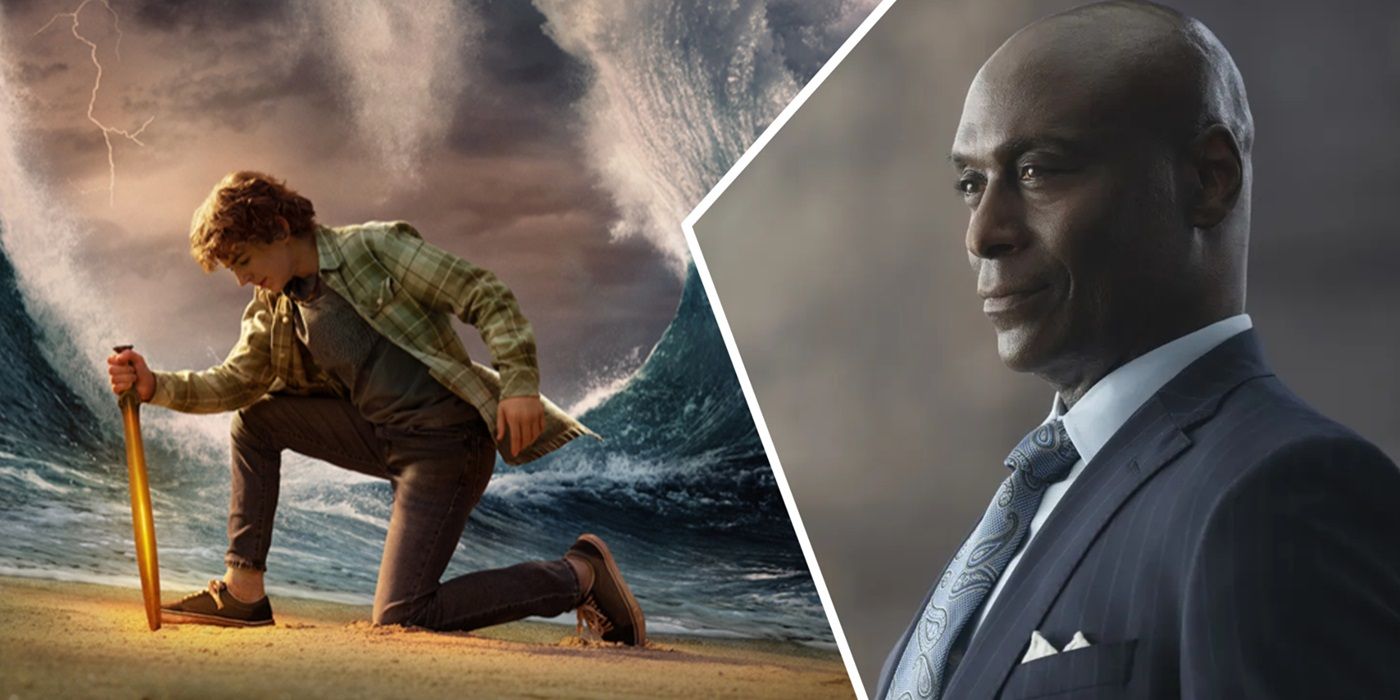
Percy Jackson: Exploring Zeus’s Son and His Impact on the Demigod World
The world of Percy Jackson, masterfully crafted by Rick Riordan, has captivated readers of all ages. At the heart of this mythological tapestry lies Percy himself, the son of Poseidon. However, understanding Percy’s significance requires exploring the complex dynamics of the Olympian gods, particularly his relationship to Zeus. This article delves into the implications of Percy being a demigod in a world forbidden to have children by the Big Three, and how that impacts the Percy Jackson universe.
The Forbidden Child: Percy’s Origins
The prophecy, the oath of the Big Three, and the subsequent birth of Percy Jackson create a narrative rife with tension and high stakes. After World War II, Zeus, Poseidon, and Hades, the three most powerful Olympian gods, swore an oath not to have any more children. The reasoning was simple: their offspring, being exceptionally powerful demigods, were often the cause of great chaos and destruction. The Second World War, largely fueled by the actions of demigods, served as a stark reminder of the dangers of breaking this oath.
Despite the oath, Poseidon, driven by a complex mix of grief and love, broke his vow and fathered Percy Jackson with Sally Jackson. This act immediately placed Percy in a precarious position. He was not just a demigod; he was a forbidden child, a living embodiment of a broken oath, and a potential catalyst for another devastating war among the gods. The implications of Percy’s existence ripple throughout the entire series, shaping his destiny and the fates of those around him.
Zeus’s Reaction and the Lightning Thief
Zeus’s reaction to Percy’s existence is central to the plot of the first book, *The Lightning Thief*. When Zeus’s master bolt, the symbol of his power and authority, is stolen, he immediately accuses Percy of the theft. This accusation stems from the belief that Poseidon, jealous of Zeus’s power, used Percy as a pawn in a larger scheme to usurp his throne. The tension between Zeus and Poseidon, already strained by centuries of rivalry, escalates dramatically with Percy’s arrival on the scene. The stolen master bolt serves as a pretext for a potential war between the two brothers, a war that could plunge the world into chaos.
The quest to retrieve the lightning bolt becomes Percy’s first major challenge. He must prove his innocence, prevent a war between the gods, and come to terms with his newfound identity as a demigod. This journey forces him to confront not only monsters and mythical creatures but also the prejudices and expectations of the Olympian gods. The fact that Percy is a son of Poseidon automatically makes him a suspect in Zeus’s eyes, highlighting the deep-seated animosity and distrust that exists within the Olympian family.
Percy Jackson: A Child of the Prophecy
Beyond the immediate conflict surrounding the stolen lightning bolt, Percy’s existence is further complicated by the Great Prophecy. This prophecy, delivered by the Oracle of Delphi, foretells that a child of the Big Three will reach the age of sixteen and make a decision that will either save or destroy Olympus. Percy, being the first child of the Big Three to reach this age since the oath was sworn, becomes the prime candidate to fulfill this prophecy. The weight of this responsibility rests heavily on his shoulders, shaping his choices and actions throughout the series. He must navigate the treacherous political landscape of the Olympian world while also grappling with his own personal demons and insecurities.
The prophecy adds another layer of complexity to Percy’s relationship with Zeus. While Zeus initially views Percy as a threat, he also recognizes the potential for him to be a valuable ally. The gods are constantly scheming and manipulating events to ensure their own survival, and Percy becomes a key player in this ongoing power struggle. Zeus must decide whether to trust Percy, or to eliminate him as a potential threat. This internal conflict within Zeus drives much of the narrative tension in the later books.
Percy’s Relationships with the Olympian Gods
Percy’s interactions with the other Olympian gods are varied and complex. While Zeus remains a figure of authority and suspicion, Percy develops relationships with other gods who offer guidance, support, or even outright assistance. Athena, the goddess of wisdom and strategy, becomes a reluctant mentor to Percy, recognizing his potential despite his lineage. Hermes, the messenger god, provides Percy with crucial information and resources, often acting as a neutral party in the conflicts between the gods. Even Ares, the god of war, initially an antagonist, develops a grudging respect for Percy’s courage and fighting abilities.
These interactions highlight the nuanced nature of the Olympian gods. They are not simply one-dimensional figures of good or evil but rather complex individuals with their own motivations, biases, and agendas. Percy’s ability to navigate these complex relationships is crucial to his survival and his success in fulfilling the prophecy. He learns to understand the gods’ weaknesses, their strengths, and their hidden agendas, allowing him to make informed decisions and forge alliances that benefit him and his friends. The Percy Jackson series demonstrates how the gods, despite their flaws, can still offer guidance and support to those who are worthy.
The Long-Term Impact of Percy’s Existence
The consequences of Percy’s birth extend far beyond the immediate events of the first series. His existence challenges the established order of the Olympian world, forcing the gods to confront their own flaws and prejudices. The breaking of the oath of the Big Three sets a precedent for future demigods, leading to a resurgence of powerful offspring and a renewed focus on the potential dangers they pose. The events of the *Heroes of Olympus* series are directly influenced by the aftermath of Percy’s actions, as new threats emerge and old alliances are tested.
Percy Jackson’s legacy is one of change and reform. He demonstrates that demigods are not simply pawns to be used and manipulated but rather individuals with the potential to shape their own destinies. He challenges the traditional power structures of the Olympian world, advocating for greater equality and respect for demigods. His actions inspire others to question the status quo and fight for a better future. The Percy Jackson series ultimately offers a message of hope and empowerment, suggesting that even the most forbidden child can rise to greatness and make a lasting impact on the world. The character of Percy Jackson, the son of Poseidon, is a critical part of understanding the power dynamics between Poseidon and Zeus.
Conclusion
Percy Jackson’s story is a compelling exploration of identity, destiny, and the complex relationships between gods and mortals. As the forbidden son of Poseidon, Percy faces challenges and expectations that would overwhelm most individuals. However, his courage, loyalty, and unwavering sense of justice allow him to overcome these obstacles and become a true hero. The Percy Jackson series remains a relevant and engaging work of literature because it speaks to the universal themes of self-discovery, friendship, and the importance of fighting for what is right. The impact of Percy being a son of Poseidon and his relationship to Zeus are central to the storyline. Understanding this complex dynamic provides deeper insight into the world that Riordan has created. The character of Percy Jackson, and his journey, is a cornerstone of the story, influenced heavily by the actions and reactions of Zeus and the other Olympian gods.
The series also explores the concept of family, both biological and chosen. Percy’s relationship with his mother, Sally Jackson, is a constant source of strength and inspiration. His friendships with Annabeth Chase and Grover Underwood provide him with unwavering support and companionship. These relationships highlight the importance of love, loyalty, and the power of human connection in the face of adversity. The Percy Jackson series is not just a story about gods and monsters; it is a story about the power of human relationships to overcome even the most daunting challenges.
Ultimately, Percy Jackson’s journey is a testament to the enduring power of hope and the belief that even in the darkest of times, good can prevail. His story continues to resonate with readers of all ages, reminding us that even the most ordinary individuals can rise to extraordinary heights. The dynamic between Percy Jackson and Zeus, marked by suspicion and eventual respect, is a key element in the series’ overarching narrative of change and acceptance. The fact that Percy Jackson is a son of Poseidon makes him a target in the eyes of Zeus. Without the birth of Percy Jackson, the son of Poseidon, the landscape of the demigod world would be drastically different. [See also: The Lightning Thief Summary] [See also: Percy Jackson Book Series Order] [See also: Greek Mythology Explained]

